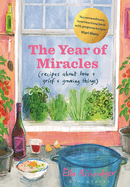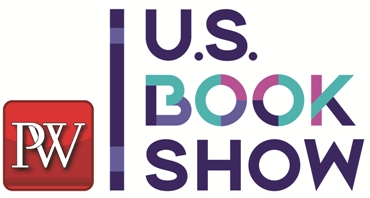 "In prepping for this conversation I was doing just a mental inventory of what the spaces are in which we work with university presses and I couldn't think of one aspect of our work that isn't touched by our relationship with the UPs," Clancey D'Isa, director of strategy and development, Seminary Co-op Bookstores, Chicago, Ill., said at Tuesday's U.S. Book Show session exploring curation through partnerships with university presses.
"In prepping for this conversation I was doing just a mental inventory of what the spaces are in which we work with university presses and I couldn't think of one aspect of our work that isn't touched by our relationship with the UPs," Clancey D'Isa, director of strategy and development, Seminary Co-op Bookstores, Chicago, Ill., said at Tuesday's U.S. Book Show session exploring curation through partnerships with university presses.
Joining D'Isa on the panel were Alyson Turner, co-owner, Source Booksellers, Detroit, Mich.; Gianna LaMorte, assistant director, sales and marketing manager for University of Texas Press; Catherine E. Hobbs, Columbia University Press Consortium sales manager; and Levi Stahl, marketing director, University of Chicago Press.
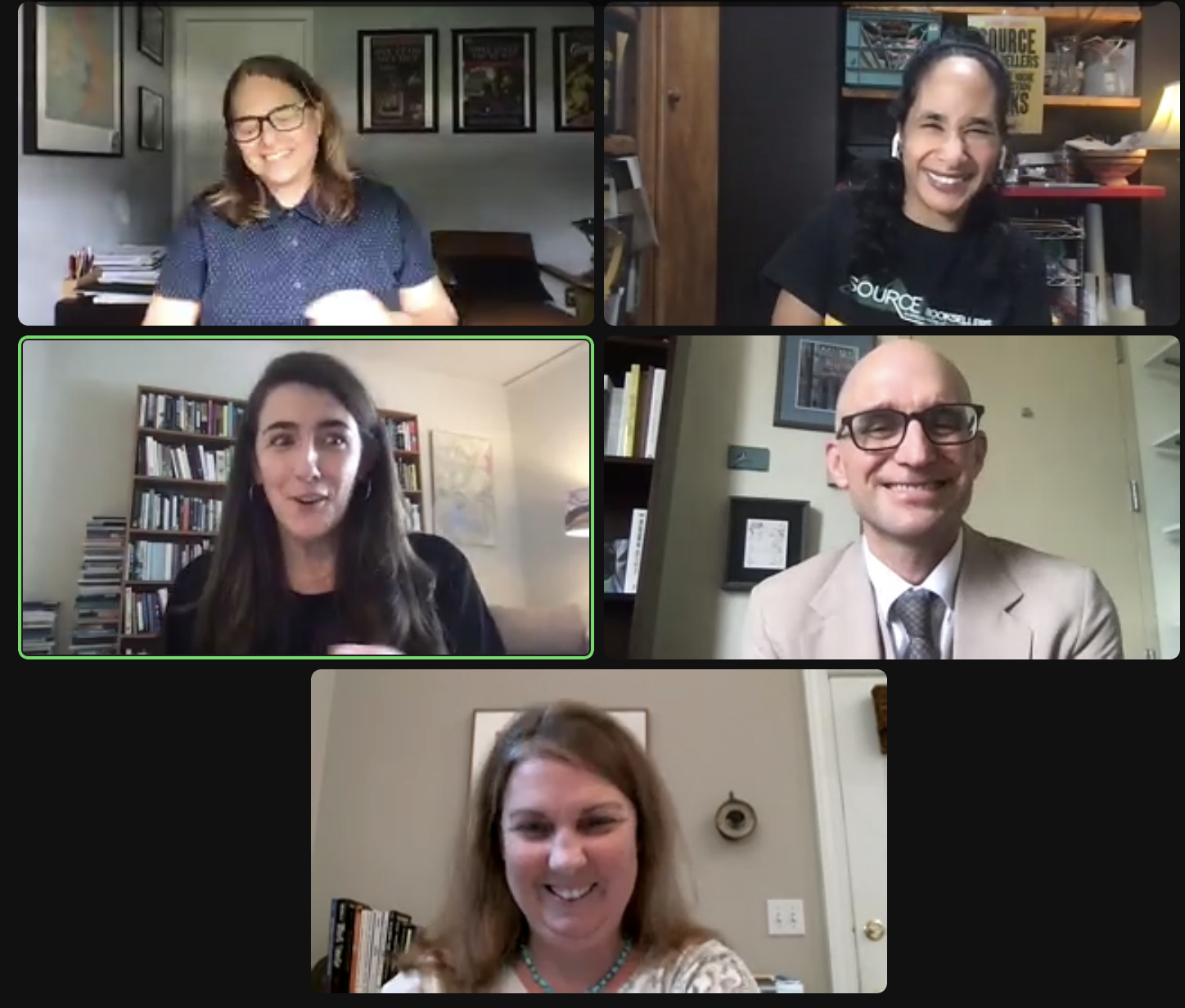 |
| Clockwise from top left: Gianna LaMorte, Alyson Turner, Levi Stahl, Catherine E. Hobbs, Clancey D'Isa |
Discussing some of the myths surrounding university presses, Stahl noted that, as a former bookseller himself, he understood UP books can seem peripheral to some booksellers. Other misconceptions may include pricing, discounting and fulfillment, but "functionally, a good university press is like a trade house in how you interact with the portions of your list that make sense for your store. I think that's the key."
"I field a lot of questions from bookstore buyers who don't have good relationships with our reps yet," Hobbs said. "We're actually easy to work with. There's value in getting to know your university press rep because we can help you find the right books for your store, for your categories and help you get the best terms."
LaMorte agreed: "We've come a long way. We've heard booksellers for years say 'your books are out of reach.' We've heard you. We've made lots of adjustments, especially for regional books."
Discussing how commission reps can connect with booksellers, Turner said: "We've been getting e-mails to let us become aware of the new lists from some of our university press reps. That's really helpful because we're not going to a big show and we can't see your table, can't see all the books."
D'Isa observed that the panel itself was a good start, along with "working to connect with interested bookstores and reminding bookstores that myths about university presses are not the actual experiences so many people who do collaborate with university presses experience.... Every one of our UP reps takes the time to think about not just curation and not just reaching out to our stores but asking: What would support the work here?... That is the work, a kind of shared value that we actually are doing fundamentally the same type of work."
University presses care about booksellers, Hobbs said. "We're invested in sustaining both of our spaces. Of course the urgency is having these books on the shelf and having them physically available because that's what we do as shepherds of and stewards of bookstores.... There's a serendipity that our books bring to the browsing experience in your stores."
Turner highlighted the fact that university press author events can be very successful, particularly when the title has regional relevance. She cited a recent virtual event for Dr. Charles Bell's book Suspended: Punishment, Violence, and the Failure of School Safety (Johns Hopkins U. Press), noting that "interest in the book keeps growing and growing and growing.... University press books are wonderful event books."
When asked what university presses can do to make life easier for booksellers, D'Isa said, "One of the things that has been most successful is seeing UPs in the same channels where we see trade books. And being able to download on Edelweiss; having ARCs available.... We talk a lot about ways in which independent presses are supported by a similar kind of mechanism. That's a really good parallel. As booksellers, we should think of UPs in the same vein.... The world of UPs is incredibly diverse and engaging."
Turner advised the reps to "keep doing what you're doing. Every time I e-mail a rep I get a response.... It does help sometimes if there's a book the rep thinks will really work in our area, in our store, if we can just get an ARC so we can make sure we handsell it and really put our best foot forward for that book."
"I feel like in a way we're all booksellers," LaMorte observed. "Like booksellers, university presses have just the right amount of competitiveness, but we are more colleagues than anything else and are very helpful to each other."
D'Isa agreed: "For any bookstores that don't have relations with UP reps, you're missing something. You're missing collegiality; you're missing your colleagues out there, so go find them, make connections, know they're probably trying to find you, too." --Robert Gray
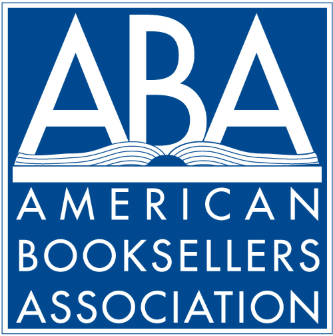 In a last-minute switch, the American Booksellers Association has postponed its annual meeting and town hall that were scheduled for this afternoon to Thursday, July 14, Bookselling This Week reported. The association gave no reason for the move.
In a last-minute switch, the American Booksellers Association has postponed its annual meeting and town hall that were scheduled for this afternoon to Thursday, July 14, Bookselling This Week reported. The association gave no reason for the move. 










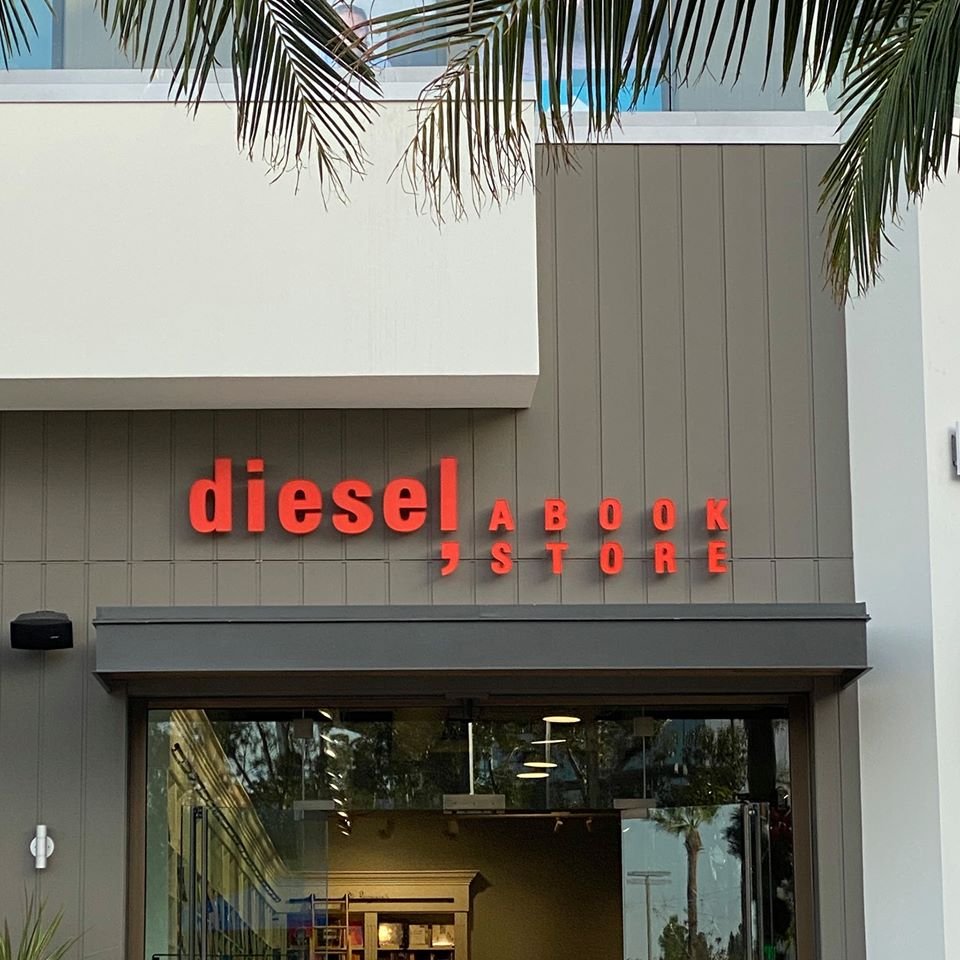 Alison Reid and John Evans, owners of
Alison Reid and John Evans, owners of 
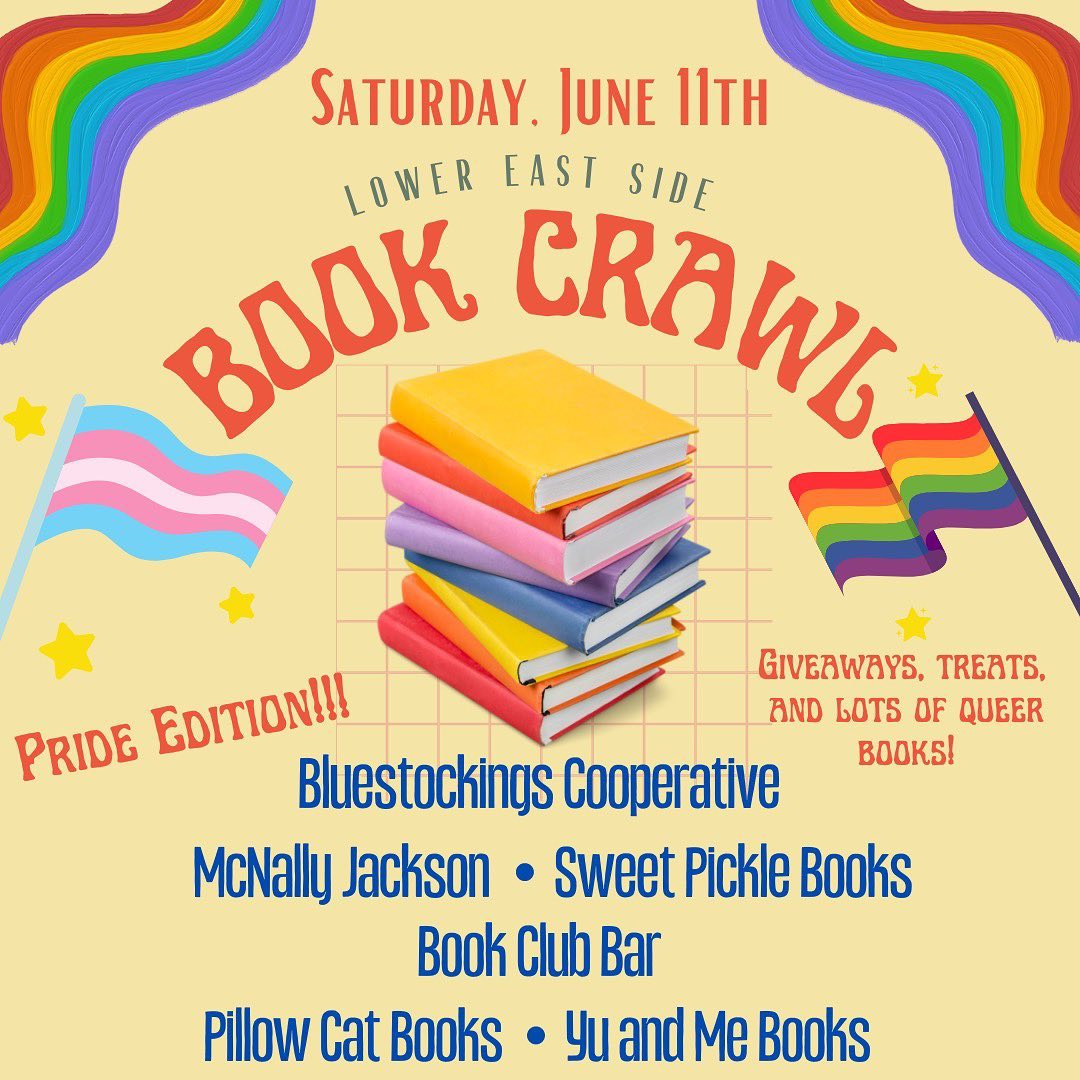
 "In prepping for this conversation I was doing just a mental inventory of what the spaces are in which we work with university presses and I couldn't think of one aspect of our work that isn't touched by our relationship with the UPs," Clancey D'Isa, director of strategy and development,
"In prepping for this conversation I was doing just a mental inventory of what the spaces are in which we work with university presses and I couldn't think of one aspect of our work that isn't touched by our relationship with the UPs," Clancey D'Isa, director of strategy and development, 
 The American Booksellers Association, Candlewick Press and General Motors are partners in the "STEM Reads" book giveaway, under which young readers are encouraged to explore interests in science, technology, engineering, and mathematics through reading science fiction and fantasy. As part of the program, up to 20,000 copies of a special paperback edition of Christina Soontornvat's The Last Mapmaker (Candlewick), a "resolute, high-seas adventure set in a Thai-inspired fantasy world," are available to distribute to readers between the ages of 8 and 12 in underserved communities.
The American Booksellers Association, Candlewick Press and General Motors are partners in the "STEM Reads" book giveaway, under which young readers are encouraged to explore interests in science, technology, engineering, and mathematics through reading science fiction and fantasy. As part of the program, up to 20,000 copies of a special paperback edition of Christina Soontornvat's The Last Mapmaker (Candlewick), a "resolute, high-seas adventure set in a Thai-inspired fantasy world," are available to distribute to readers between the ages of 8 and 12 in underserved communities.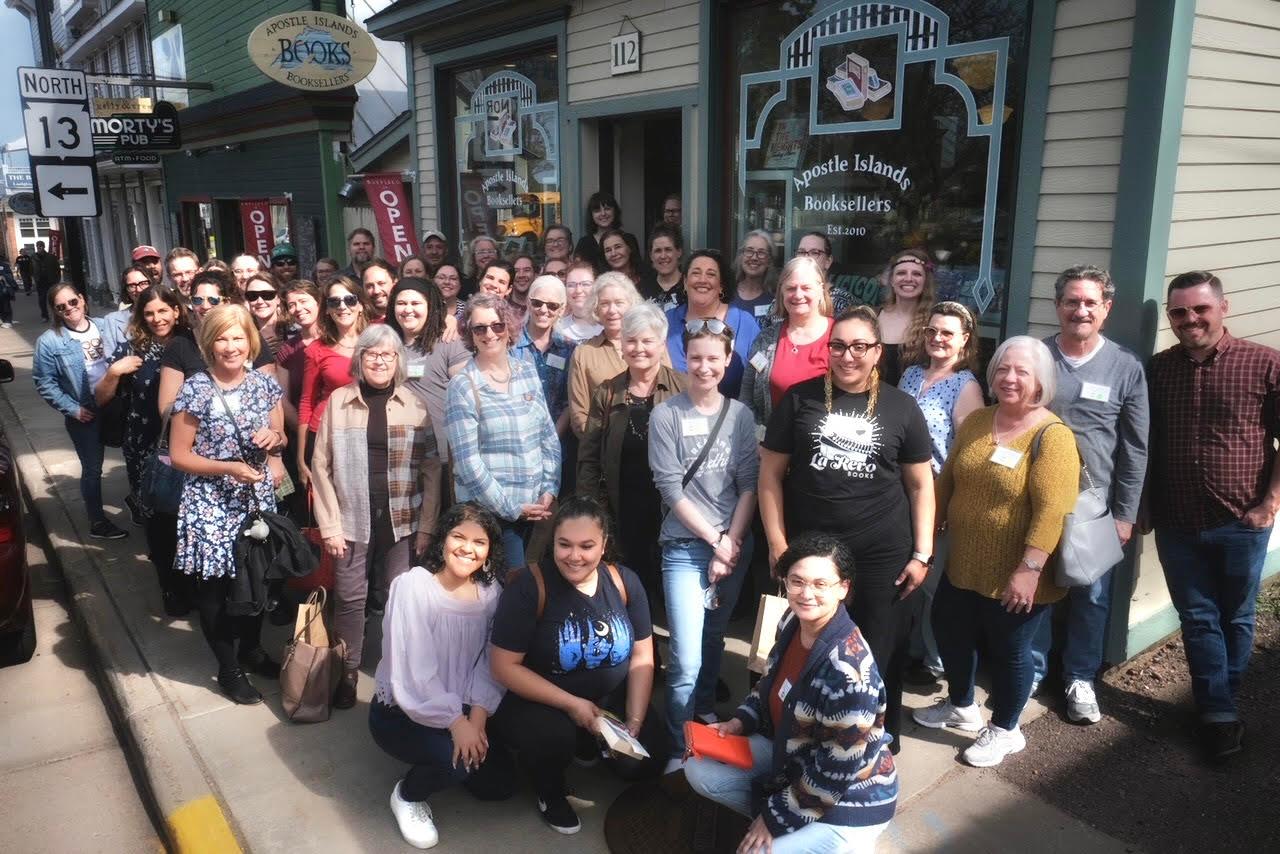 The final event of the Midwest Independent Booksellers (MIBA) two-day
The final event of the Midwest Independent Booksellers (MIBA) two-day 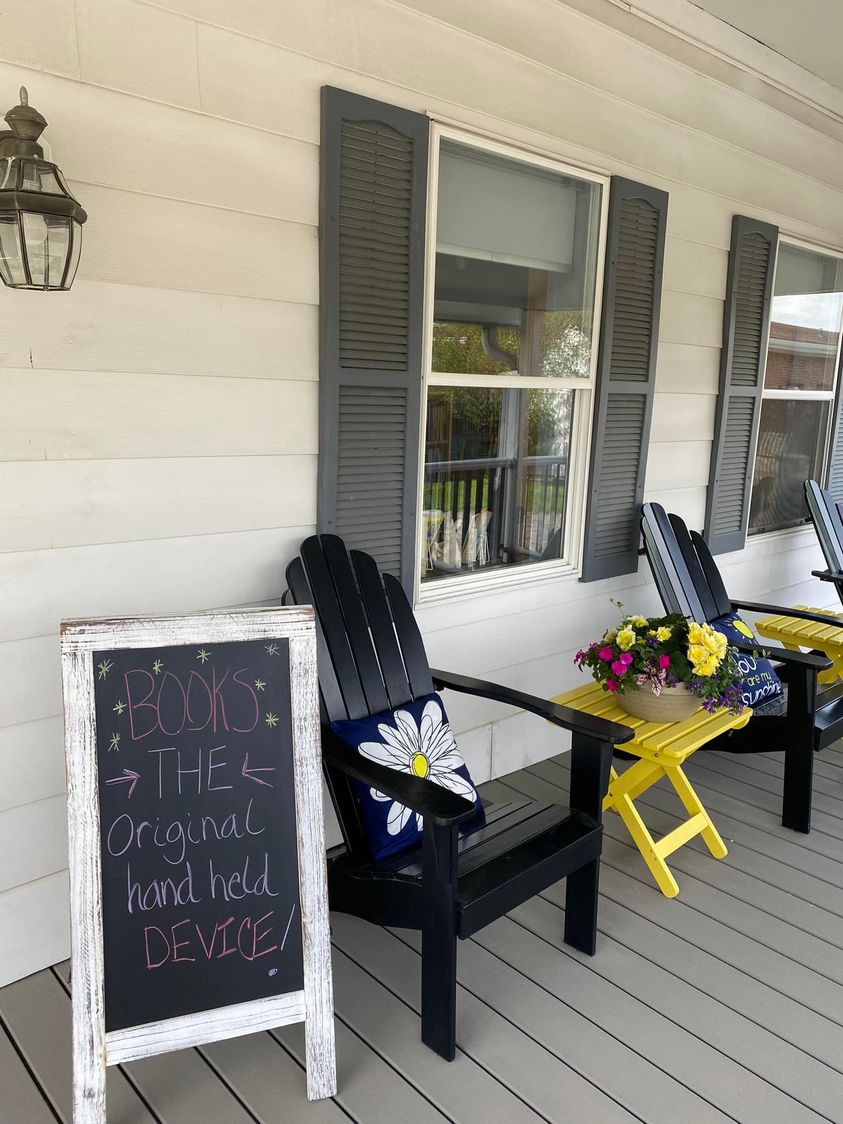 "
"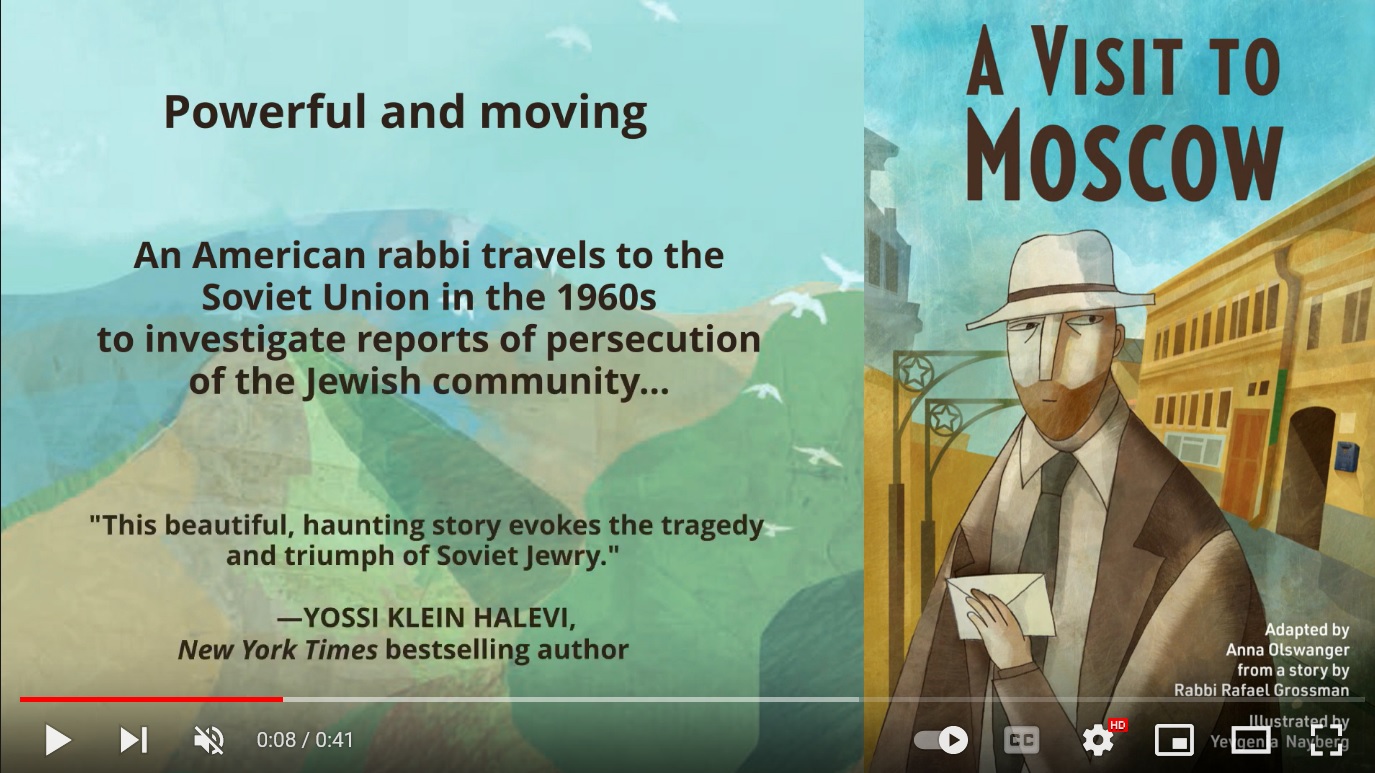 A Visit to Moscow
A Visit to Moscow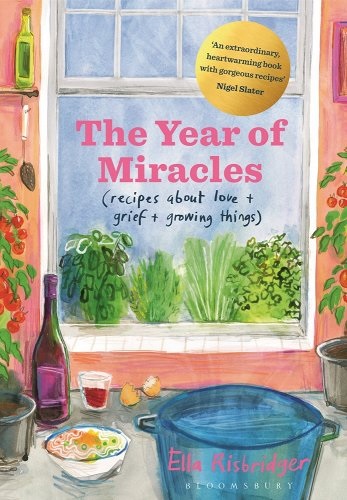 After losing her beloved partner, Jim, writer and home cook Ella Risbridger (who chronicled some of their relationship in Midnight Chicken) found herself in a tailspin. Soon after she moved into a new flat with her friend Jo, the Covid-19 pandemic sent London and the world into lockdown. In her second memoir-cum-cookbook, The Year of Miracles, Risbridger recounts a year of cooking and community, and how both provided healing in a time of great internal and external strain.
After losing her beloved partner, Jim, writer and home cook Ella Risbridger (who chronicled some of their relationship in Midnight Chicken) found herself in a tailspin. Soon after she moved into a new flat with her friend Jo, the Covid-19 pandemic sent London and the world into lockdown. In her second memoir-cum-cookbook, The Year of Miracles, Risbridger recounts a year of cooking and community, and how both provided healing in a time of great internal and external strain.